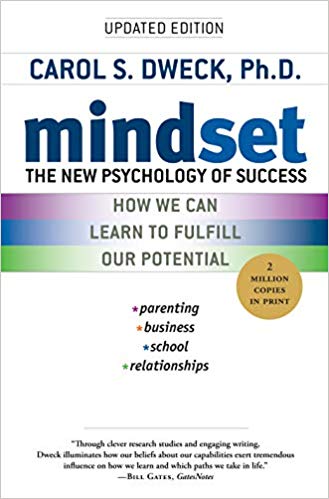

This article is an excerpt from the Shortform summary of "Mindset" by Carol Dweck. Shortform has the world's best summaries of books you should be reading.
Like this article? Sign up for a free trial here .
What are the impacts of negative labels? How do fixed mindsets–yours and those of the people around you–contribute to negative labeling?
We’ll cover what negative labeling is, why it’s harmful, and how you may be doing it–to yourself or others–without realizing it.
Negative Labels: How They Develop
A fixed mindset that stereotypes groups of people with negative labels undercuts their performance. For instance, this affects girls who are told they’re bad at math and science, and African Americans who are stereotyped as less intelligent.
A study showed that checking a box indicating your race or sex before taking a test can remind you of the stereotypes surrounding those negative labels and lower your score if you have a fixed mindset. In growth-minded students, the stereotype doesn’t affect performance. Further, the study showed that students perform equally when no stereotypes are invoked.
Researchers theorized that the stereotypes distracted and worried fixed-minded students, detracting from their ability to concentrate on the test. It also suggested a growth mindset can help students counteract negative labels when they encounter them.
Stereotypes also hinder people’s development by making them feel they don’t belong — in a certain college, program, course, or occupation. Many women and minorities drop out of environments where they feel they’re not fitting in, especially if they have a fixed mindset.
Vulnerability to Opinion and Negative Labels
The gender gap in math and science is no doubt widened by fixed mindsets as well as stereotyping. These fields need to be more friendly to women — and women would benefit from learning a growth mindset to overcome negative messages and negative labels about girls’ abilities to succeed in these fields.
Negative Labels and Coping with Rejection
Often, negative labels come from our own negative self-talk. The road to satisfying relationships is marked with disappointments, mistakes, and most devastating of all, rejection. When they experience setbacks, some people are able to heal and move on to better relationships, while others remain stuck or scarred. The difference is mindset.
Researchers recruited 100 people to describe their experience of rejection. The study compared how those with fixed mindsets handled it versus those with growth mindsets:
- People with fixed mindsets felt judged and negatively labeled as a failure or unlovable. They reacted angrily to the person who rejected them and were obsessed with getting revenge or making that person suffer.
- People with growth mindsets wanted to understand, learn, and move on to more successful relationships. They didn’t feel negatively labeled but instead looked for insights about themselves and lessons such as the importance of communicating. Rather than revenge, their top goal was to forgive.
Researchers gave eighth-graders a scenario about bullying and asked them to imagine it was happening to them. When asked to write down how they’d feel and react if they were taunted on a daily basis, students with a fixed mindset said they’d feel judged (“I would think I was weird or a nobody”). They also wanted to strike back — to hit the bullies or run over them. They strongly agreed with the statement, “My number one goal would be to get revenge.”
Students with a growth mindset were less likely to feel judged or negatively labeled as less worthy by bullying. They saw it as the bully’s problem — a way for them to feel better. They wanted to confront or question the bully about why they needed to hurt others. The growth-oriented students wanted to forgive and reform the bully.
If a bullying victim doesn’t have a fixed mindset, ongoing bullying can push them into one. A victim may begin to believe they’re inferior and deserve the bullying, especially if no one else stands up for them. Victimization can lead to depression, suicide, and sometimes even violence.
———End of Preview———

Like what you just read? Read the rest of the world's best summary of "Mindset" at Shortform . Learn the book's critical concepts in 20 minutes or less .
Here's what you'll find in our full Mindset summary :
- The difference between a growth and a fixed mindset
- How a fixed mindset keeps you back throughout your life: education, relationships, and career
- The 7 key ways to build a growth mindset for yourself






